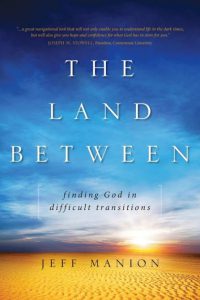Without Faith It Is Impossible to Please God
 The Bishop of Oxford, Steven Croft, visited us here in the Newbury Deanery this last week. He spoke and took questions in the evening at a public service and he focused, as he has since his inauguration, on the beatitudes from Matthew 5. For the rest of this week I have been mulling these over, especially the first one:
The Bishop of Oxford, Steven Croft, visited us here in the Newbury Deanery this last week. He spoke and took questions in the evening at a public service and he focused, as he has since his inauguration, on the beatitudes from Matthew 5. For the rest of this week I have been mulling these over, especially the first one:
Blessed are the poor in spirit,
for theirs is the kingdom of heaven.
(Matthew 5:3)
In the current Western age, the beatitudes are a prophetic word. That is, they provide a holy and constructive challenge to the status quo of church and culture; they reveal depths in the shallows, stimulation in the slumber, truth in the lie. It appears that +Steven knows how to exercise his prophetic role with gentleness and sincerity. More power to him.
“Blessed are the poor in spirit” has exactly this character. The “kingdom of heaven” is our goal, our longing (“…thy Kingdom come, they will be done, on earth as it is in heaven…”). The temptation of having any goal, in the West in general and therefore in the church, is that we seek to achieve it in our own strength, in our richness. We gather our resources, we marshall our strengths, we determine our plan, we implement our strategy, we claim our prize! This is the methodology of the wealthy and strong and while it may have some level of “success” (for some definition) it simply cannot bear kingdom fruit. How can it? We can’t have the kingdom of heaven on our terms, only on the terms of the King!
The beatitudes are not commands, you see, they are simply statements of fact. It is the poor in spirit who receive the kingdom of heaven, because it naturally comes to them. Why? Because King Jesus founds the kingdom not in power and strength, but in servanthood, humility, and trusting faith, even unto death. Look at all the characteristics of the beatitudes – poor in spirit, mourning with the world, meek, hungering for righteousness, pure, peacemaking, persecuted – and we see Jesus, who received the kingdom, from his Father, was comforted, by his Father, inherited the earth, from his Father, who was filled, by his Father, who was shown mercy, by his Father, who saw his Father, and was received by the Father even (and especially) as he took the curse of the cross upon himself and committed his spirit into the Father’s arms. Follow the king, and you will enter his kingdom. It’s not complicated, just hard!
It is a simple impossibility that the “rich in themselves” can participate in and build the kingdom. How can we serve the king by serving ourselves? How can we trust the king by relying on ourselves? Just because we can nail and weld something together and make it look like a tree, doesn’t mean we have the living, fruitful, thing.
My reflection on this has brought me to the letter to the Hebrews, particularly chapters 10 and 11. Here the “poor in spirit” are ones who exercise faith. They are the ones who have “endured a hard struggle with sufferings” (Hebrews 10:32), who have been “publicly exposed to abuse and persecution”, often because they have shared in the mourning and pain of those who are “so treated” and “in prison” (Hebrews 10:33).
They have not “shrunk back” (Hebrews 10:39), but this is not a muscular seizing the opportunity of victory, but an exercise of trust, of meekness, of reaching out to God and committing their spirit, just as Jesus didn’t shrink from the cross. Their “great reward” (Hebrews 10:35) is “what was promised”, “the assurance of things hoped for, the conviction of things not seen” (Hebrews 11:1), which is to say, the kingdom of heaven, when all is well under the good harmonious rule of the Author of Life.
Throughout Hebrews 11, the writer puts forward examples of the faithful poor in spirit, simple demonstrations of the same fact of the beatitudes: Abel’s faith (Hebrews 11:4) naturally bears the fruit of approval, Enoch’s trust naturally pleases the King (Hebrews 11:5). And something of a summary is given:
And without faith it is impossible to please God, for whoever would approach him must believe that he exists and that he rewards those who seek him. (Hebrews 11:6)
It’s a statement of fact, conceptually equivalent to the first beatitude. Just as poverty of spirit leads to the kingdom of heaven, so believing in God, seeking him, trusting him, is the path to approach, please, and receive from the God of Life. Other approaches – the demonstration of strength, the whitewash of religious words – simply pertain to a different category, they bear their own fruit.
It’s not like God is petulant, holding back blessing unless he gets his dues; it’s just that if something else is worshipped, trusted, honoured, then we get the kingdom of That Thing, and it is destructive. Who wants to live in the Kingdom of the Rich, the Kingdom of the Strong, the Kingdom of the “Look at Us Aren’t We A Lovely Church”? Yet that is where many of us live in the western world, seeking to please God without faith. It’s impossible to do.
Bishop Steven was thanked in the Q&A for his words and asked something about how we put it into practice. Being a good bishop, he didn’t give a directive answer; each local church needs to work out what the application of faith means for them. But he could have offered one general exhortation: repentance.
Richness in ourselves is simply a form of idolatry. It’s understandable, it’s prevalent, it’s culturally acceptable, it’s usually well-intentioned even if self-defeating – “Let’s not waste our many many awesome talents”…. by holding on to and relying on them! But the simple fact is that without faith it is impossible to please God. And that gives us an imperative: We must turn to him, contrite, humble, poor in ourselves, entrusting our talents (and everything else) to him. The hardest thing, of course, is that it begins with me…



